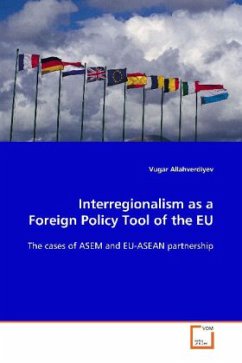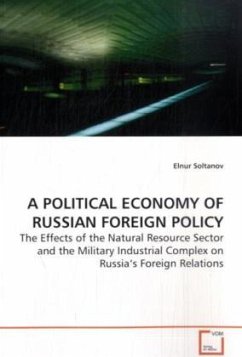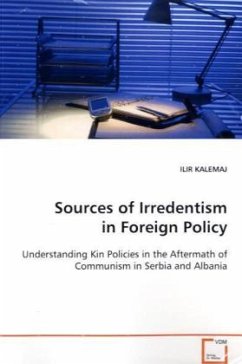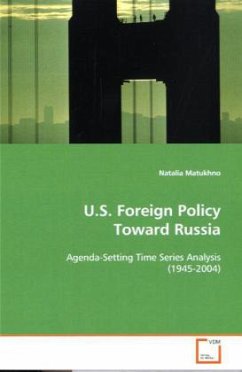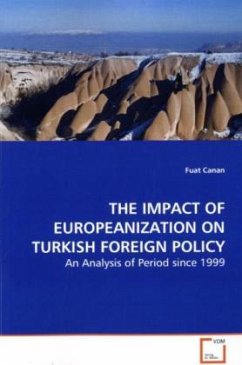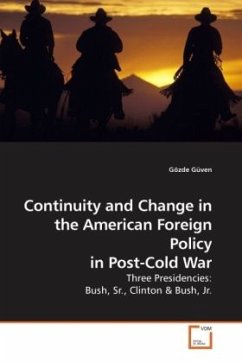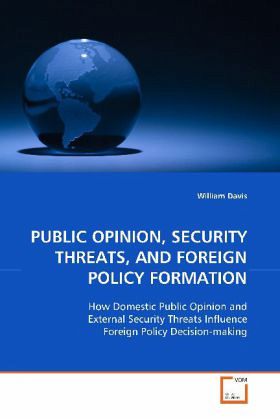
PUBLIC OPINION, SECURITY THREATS, AND FOREIGN POLICY FORMATION
How Domestic Public Opinion and External Security Threats Influence Foreign Policy Decision-making
Versandkostenfrei!
Versandfertig in 6-10 Tagen
32,99 €
inkl. MwSt.

PAYBACK Punkte
16 °P sammeln!
This analysis focuses on the domestic factors, suchas public opinion, and international factors, such assecurity threats, which affect foreign policyoutputs. Much research has suggested thatgovernments foreign policy outputs are responsive topublic opinion in advanced democratic countries. Using the cases of Germany and several US Westernallies, I offer a theory of the effect of publicopinion on foreign policy. I employ severalstatistical and cross-sectional time series analysesas well as process tracing to test the theory and thegeneralizability of the hypothesis of anopinion-foreign policy n...
This analysis focuses on the domestic factors, such
as public opinion, and international factors, such as
security threats, which affect foreign policy
outputs. Much research has suggested that
governments foreign policy outputs are responsive to
public opinion in advanced democratic countries.
Using the cases of Germany and several US Western
allies, I offer a theory of the effect of public
opinion on foreign policy. I employ several
statistical and cross-sectional time series analyses
as well as process tracing to test the theory and the
generalizability of the hypothesis of an
opinion-foreign policy nexus. I find that the
predicted effect of public opinion on foreign policy
outputs to be confounded by such factors as security
threats. I conclude that a divergence between the
threat perception of leaders and of the public is
likely to result in a lack of congruence between
public opinion and a state s foreign policy outputs.
Convergence between leaders and public opinion among
US allies in post-Cold War period and particularly in
Germany may have necessitated a reassessment of the
longstanding foreign policy relationship with the US.
as public opinion, and international factors, such as
security threats, which affect foreign policy
outputs. Much research has suggested that
governments foreign policy outputs are responsive to
public opinion in advanced democratic countries.
Using the cases of Germany and several US Western
allies, I offer a theory of the effect of public
opinion on foreign policy. I employ several
statistical and cross-sectional time series analyses
as well as process tracing to test the theory and the
generalizability of the hypothesis of an
opinion-foreign policy nexus. I find that the
predicted effect of public opinion on foreign policy
outputs to be confounded by such factors as security
threats. I conclude that a divergence between the
threat perception of leaders and of the public is
likely to result in a lack of congruence between
public opinion and a state s foreign policy outputs.
Convergence between leaders and public opinion among
US allies in post-Cold War period and particularly in
Germany may have necessitated a reassessment of the
longstanding foreign policy relationship with the US.






